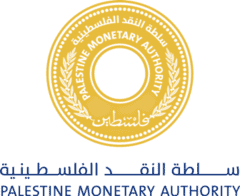-
Israel has placed restrictions on large cash transactions
-
Digital money could demonstrate apparent autonomy from Israel
The Palestinian Monetary Authority (PMA) might launch a digital currency to pave way for monetary independence from Israel. But, it raises questions over whether the measure would be practical at all.
Two studies on cryptocurrencies are underway and no decision has been made yet, but the hope is to eventually use digital currency “for payment systems in our country and hopefully with Israel and others to use for actual payments,” Palestinian Monetary Authority Governor Feras Milhem said in an interview with Bloomberg Television.
Palestinians agreed not to immediately create their own currency, under their 1990s accords with Israel, and their economy primarily uses the Israeli shekel, along with the Jordanian dinar and US dollar. Palestinian banks sometimes have to borrow to cover foreign-currency payments to third parties due to Israeli restrictions on large cash transactions aimed at cracking down on money laundering.
That could be one reason a digital currency would be attractive to the Palestinian monetary system, according to Bloomberg. However, the practicality of such a move is questionable.
“The macroeconomic conditions don’t exist to allow a Palestinian currency — digital or otherwise — to exist as a means of exchange,” said Director of Palestine Economic Policy Research Institute Raja Khalidi.
However, the issuance of some kind of digital money could “send a political signal to show the apparent appearance of monetary autonomy from Israel,” he said. The Palestinians are joining monetary authorities from Sweden to China in examining the potential of national digital currencies as the dwindling use of notes and coins threatens to upend traditional payment methods.
Former Senior Adviser of the Bank of Israel governor, Barry Topf said that a Palestinian digital currency would unlikely be a real means of exchange. “It’s not going to replace the shekel or the dinar or the dollar. It’s certainly not going to be a store of value or a unit of accounting,” he said.







